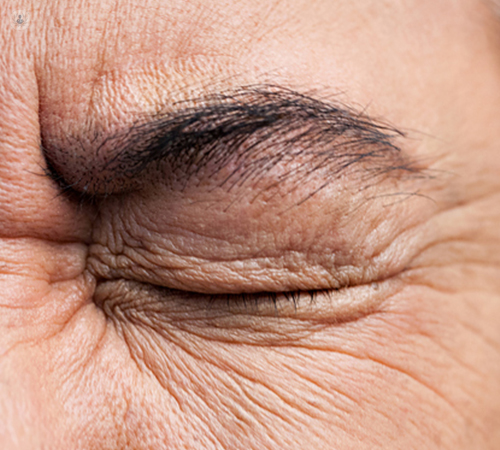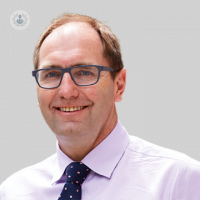Is cataract surgery safe?
Written by:Cataract surgery is an operation to remove the lens inside the eye, which cause cloudy, blurry or misty vision. It is replaced with an artificial, clear lens. It is a very common operation and, as with any procedure, there are small risks associated with surgery. The risks are minimal as a cataract operation is considered to be a safe and effective procedure to restore clear vision. Here, esteemed consultant ophthalmologist, Mr Alistair Laidlaw, provides us with a comprehensive insight into cataract surgery.

A cataract occurs when the normally clear lens of the eye is clouded and everyday vision becomes difficult. Cataracts most commonly occur during ageing. They develop slowly and do not disturb eyesight early on. Over time, if vision becomes impaired and interferes with daily activities, cataract surgery is required.
How can I prepare for cataract surgery?
Weeks before surgery, an eye doctor (ophthalmologist) will hold a pre-operative assessment with tests that measure the size and shape of the eye. This enables the specialist to choose the best lens implant and establish whether the patient may be at increased risk of complications after surgery.
What happens during a cataract operation?
Cataract surgery usually takes between 30 to 45 minutes and a patient can go home on the same day. If a patient has cataracts in both eyes, two separate operations are required a few weeks apart to enable the first eye to heal and its vision to return.
The surgeon uses anaesthetic drops to widen the pupil and relax the muscles in the eye. Small clips are used to hold the eyelids open so that the patient does not need to blink. Once the anaesthetic has taken effect, the surgeon makes tiny cuts on the surface of the eye and even though the eye is open and the patient is awake, they will not be able to see the instruments being used and do not feel pain.
The most common procedure to remove a cataract is phacoemulsification. A special instrument uses ultrasound to break up the lens. The surgeon removes the affected lens from the eye leaving behind the capsule it sits in. After it has been removed the new artificial lens, called an intraocular implant or intraocular lens, is inserted. There are other surgical procedures to treat cataracts but this is the commonest.
What are the risks of cataract surgery?
The risk of serious complications following surgery is very small. The most common complication is posterior capsule opacification (PCO), which may cause vision to become cloudy again. This can be treated with simple laser eye surgery to cut away at the membrane that has grown over the back of the lens, months later. Other risks are rare, such as, tearing of the lens capsule that holds the lens in place, an infection, and some of the cataract dropping to the back of the eye. Most complications are treated with medication or further surgery. Around 1 in 1,000 patients risk permanent sight loss in the treated eye as a result of the procedure.
What does aftercare involve after cataract surgery?
For a few days post-surgery, it is common to experience some fluid discharge and it is hard to see clearly in bright light. Eye drops will be provided to prevent infection and also an eye shield to sleep in. After eight weeks the eye should be fully healed. Around 90% of patients see better after cataract surgery but may still need to wear glasses or contacts.
To book an appointment with Mr Alistair Laidlaw today, visit his Top Doctors profile.


